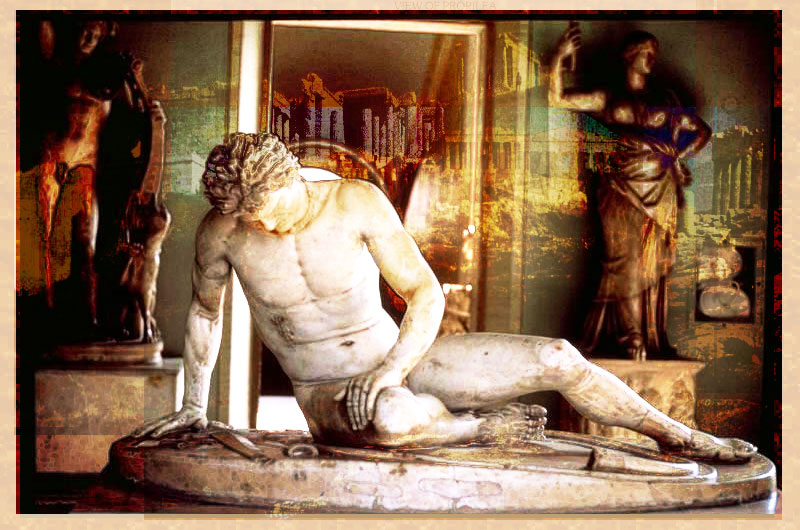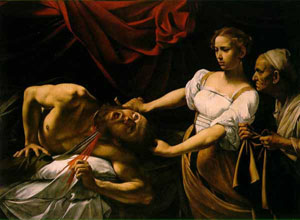City College
An Introduction to Humanities
Course: HUM 1020
Spring 2004
Credits: 4
Time: Tuesday 6-10 pm
Instructor: Afshin Hafizi
Email: mhafizi@english.ufl.edu
 The
Dying Gaul
The
Dying Gaul
CONTACT HOURS:
|
Lecture: 40 Lab: 0 Intern/Externship: 0 Total Contact Hours: 40 Total Credit Hours: 4 |
10 contact hours = 1 lecture credit 20 contact hours = 1 laboratory credit 30 contact hours = 1 intern/externship credit |
COURSE DESCRIPTION:
This course examines Eastern and Western humanities, focusing on arts and ideas, with the objective of creating a greater awareness of the world community. This course examines the various cultures of the Near East, Far East, and Africa relative to the Western tradition. The cultural and aesthetic perspectives in Western Humanities is also examined, with the objective of facilitating the development of personal aesthetic sensibilities.
COURSE PREREQUISITES:
EN120
COURSE OBJECTIVES:
At the conclusion of the course, the student should be able
to:
define humanities and how it is applied to Western, Eastern, Near Eastern,
and African cultures
identify the common human experiences shared by different cultures as reflected
in their artistic endeavors
explain how works of "art" from various cultures can reflect and
embody the central values and beliefs of a given culture
describe their own personal aesthetic perspective
identify major artworks and their significance within the larger culture
discuss a broad spectrum of styles, voices, and perspectives
demonstrate a basic familiarity with the events and trends which have shaped
the principle cultures of the world
COURSE DESIGN:
This course is designed as a lecture-discussion course with a textbook. In addition, videos, performances and observations of performances by other students will give the student a hands-on experience in developing a clear understanding of the speech communications process.
COURSE REQUIREMENTS:
Students are expected to be in class on-time and for the duration of each class session. If absence or tardiness is unavoidable, students are expected to call the college and leave a message for the instructor. Students must bring a textbook, pens/pencils and a notebook to class.
ATTENDANCE REQUIREMENTS:
If a student misses twelve consecutive hours in a three or four credit hour course, six consecutive hours in a two credit hour course, or equivalent time in courses in additional credit hours and has below a "C" average, he/she may be withdrawn from that course and will receive the appropriate grade. A student may also be dropped for excessive non-consecutive hours of absence from a class.
For further information on attendance, consult the current
edition of the City College Catalog.
COURSE MATERIALS:
Text: Arts and Culture, An Introduction to the Humanities, Combined Edition; Janetta Rebold Benton and Robert DiYanni; Prentice Hall.
ADDITIONAL COURSE RESOURCES:
Additional course resources, including but not limited to research books and materials and Internet computer access, are available in the resource center/library.
COURSE EVALUATION STANDARDS:
|
Grading Breakdown: 90 - 100 = A 80 - 89 = B 70 - 79 = C 60 - 69 = D 0 - 59 = F |
Grading Scale: 20% Participation & Attendance 20% Exam I 20% Exam II 20% Exam III 20% Final |
COURSE OUTLINE:
Session 1
Introduction to course
Explain syllabus, assignments and grading procedure
Preface
Chapter 1: The Dawn of Culture: Mesopotamia
Exercise (The British Museum)
Session 2
 Diogenes
of Sinope
Diogenes
of Sinope Socrates
Socrates
Chapter 3: Aegean Culture and the Rise of Ancient
Greece
Chapter 4: Classical and Hellenistic Greece
Presentation I (Archaic Greek)
Presentation II (Archaic Greek)
Presentation III (Hellenic Greek)
Presentation IV (Hellenic Greek)
Presentation V (Hellenic Greek)
Presentation VI (Hellenistic Greek)
Presentation VII (Hellenistic Greek)
Presentation VIII (Hellenistic Greek)
Multiple Choice Questions on the Hellenic Greece
Multiple Choice Questions on the Hellenistic Greece
Session 3
Chapter 5: The Roman World
Presentation I (Early Roman)
Presentation II (Early Roman)
Presentation III (Late Roman)
Multiple
Choice Questions on the Early Roman World
Multiple Choice Questions on the Late Roman World
Session 4
Chapter 7: Byzantine and Islamic Civilizations
Presentation
I (Byzantine)
Presentation II (Islam)
Presentation III (Islam)
Presentation IV (Islam)
Presentation V (Islam)
Multiple Choice Questions on the World of Islam
Session 5
Chapter 11: The Early Middle Ages and the Romanesque
Chapter 12: The Gothic and Late Middle Ages
Multiple Choice Questions on the High Middle Ages
Multiple Choice Questions on the Late Middle Ages
Session 6
Chapter 13: The Renaissance and Mannerism in
Italy
Chapter 14: The Renaissance in the North
Multiple Choice Questions on the Early Renaissance
Multiple Choice Questions on the High Renaissance
Session 7
 Caravaggio
Caravaggio
Chapter 15: The
Baroque Age
Chapter 16: The
Eighteenth Century
 Jacques-Louis
David
Jacques-Louis
David
Multiple Choice questions on the Baroque Age I
Multiple Choice questions on the Baroque Age II
Multiple Choice questions on the Eighteenth Century (Age of Reason)
Session 8
Chapter 17: Romanticism and Realism
Chapter 18: The Belle Époque
Multiple Choice Question on Romanticism
Session 9
Chapter 20: Russian Civilization
Chapter 21: The Age of Anxiety
Chapter 22: Modern Africa and Latin America
Multiple Choice Question on the Age of Anxiety
Session 10
Chapter 23: The Age of Affluence
Chapter 24: The Diversity of Contemporary Life
Review
Session 11
Final Exam